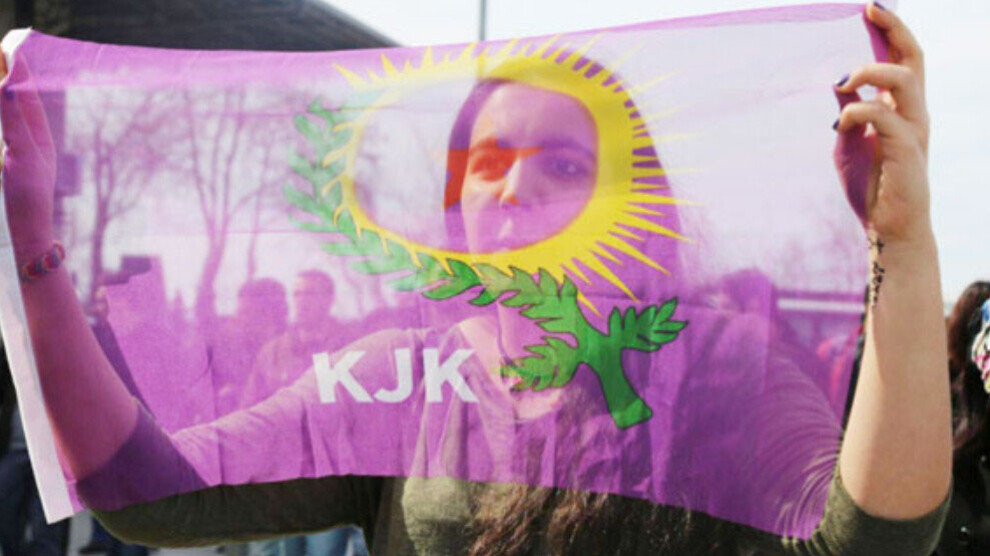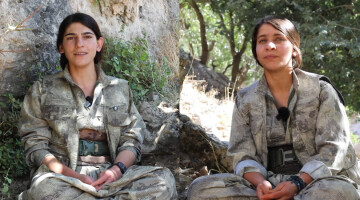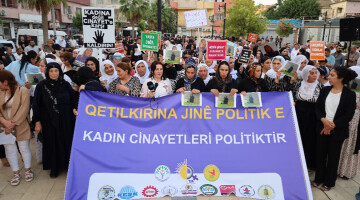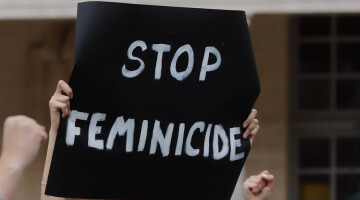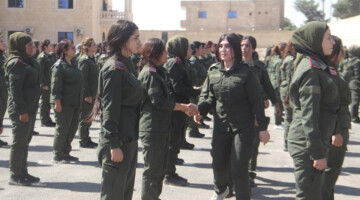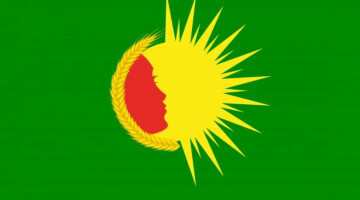The Kurdistan Women’s Communities (KJK) Committee for Democratic Relations and Alliances released a statement marking March 8, International Women’s Day.
“Revolution is not a certain date marked in the calendar but a constantly continuing process which has already started. Therefore, we need to liberate our relations, partnerships, friendships, and families, and fill our living spaces with a culture based on freedom, communalism, democracy and ecology,” said the KJK statement released on Monday, which further includes the following:
“On the occasion of International Women’s Day, we commemorate all women that lost their lives in the struggle for freedom and equality. The memory of women like Sakine Cansız, Rosa Luxemburg, Meena Kewshwar, Berta Caceres, Shadia Abu Ghazaleh, Maita Gomez, Emily Davison and many, many more continues to light our path of resistance. On March 8, 2022, as the Kurdistan Women’s Movement, we send our revolutionary greetings to all freedom-seeking women and recommit to transforming our century into the age of women’s liberation.
If we look at the past year, we can see both gains, like in India or Colombia, as well as setbacks like in Afghanistan and Poland. This is not unusual. Quite the contrary, in this period of women’s history gains and losses go hand in hand. Because, while on the one hand women’s pursuit of freedom and equality is rising, the patriarchal system tries to counter this most dynamic struggle of our age by organizing and mobilizing misogyny and sexism. The systematic attack by fundamentalist forces on women’s rights under the mask of religion or moralism, the targeted killing of female community leaders, increased sexual and physical violence are expressions of this patriarchal aggressive war, which aims to prevent the women’s revolution from happening.
The opportunities, conditions and urgency to realize this revolution have never been higher. The reasons for this historical chance lie in women’s powerful quest for freedom, the structural crises of the patriarchal capitalist hegemony, and the strategic role of women’s liberation in the 21st century. Once again, we see how right our leader Abdullah Öcalan was at the end of the last century when predicting that “The 21st century will be the age of women’s liberation”. Women’s struggle for freedom, equality, justice, dignity and peace is the most inclusive social movement today, embracing and including people’s struggles for democracy, against fascism and racism, for the protection of nature and the right of self-determination. This makes her the most strategic force in the thousands-year-old struggle against power and exploitation.
As women’s movements that struggle for the realization of freedom and equality, we need to take these historical conditions and the responsibility they put on our shoulders into consideration when organizing our resistance. We need to collectively analyse the historical situation in which we find ourselves, evaluate risks, challenges and opportunities, clarify our goals and develop our strategic road maps. Our gatherings should serve these needs and result in a stronger autonomous organization of the transnational women’s movement. Moreover, we need to find forms and structures that allow us to struggle commonly based on an optimal balance between the local and the universal. As the Kurdish Women’s Liberation Movement, we call our suggestion World Democratic Women’s Confederalism. Based on our own practical and theoretical experiences, we believe that Democratic Confederalism could be the form needed to organize the women’s revolution and, by doing so, transform our century into the age of women’s and society’s liberation.
For this we also need more ground for theoretical and ideological discourses on the roots of patriarchy as well as free life. Freedom is nothing to be postponed to an unknown date in the far future. It is essential that we do not separate our life from our struggle but live what we stand for and demand now. Revolution is not a certain date marked in the calendar but a constantly continuing process, which already started. Therefore, we need to liberate our relations, partnerships, friendships, and families, and fill our living spaces with a culture based on freedom, communalism, democracy and ecology.
We need to be very aware of the counterrevolutionary attacks of the patriarchal system, especially those that seem to be invisible. In particular, we need to deepen our awareness of liberalism ideology, the main instrument of capitalist modernity to integrate women’s movements into the ruling system. The appointment of women for posts within the capitalist state order under the pretext of ‘gender equality’ should be seen critically, as often they aim to undermine the women’s movement’s demands. The same applies to attempts to divide the women’s movement by creating artificial hostilities. Ideological discourses are essential for the development of the feminist movement but should not end in fighting each other, which only serves the patriarchal system. We should not allow the tactic of ‘divide and rule’ to infiltrate our struggles and must respond to these attempts by strengthening our unity.
World Democratic Women’s Confederalism might act as the ground for strengthening this unity through building the world women’s autonomous system. The more we organize ourselves autonomously, the more we’ll be able to change. Only organized will we be able to liberate ourselves and life. In this sense, on the occasion of March 8, we call all women, in Kurdistan and around the world, to take her part in the women’s revolution through organizing. We call all progressive, revolutionary and freedom-seeking women’s movements and groups to collectively build World Democratic Women’s Confederalism with us and our organized sisters from all around the world.”

